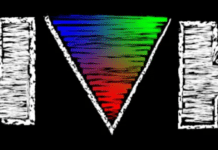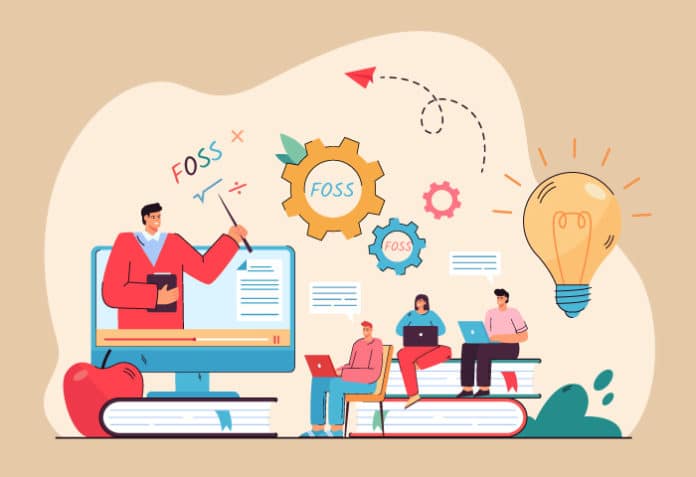This article examines some of the initiatives by the Indian government to encourage the wider acceptance of FOSS. These include developing new access-friendly technologies, organising FOSS workshops and training, providing certificates for online training courses, and conducting valuable R&D activities.
Free and open source software, abbreviated as FOSS, helps people and organisations benefit from digital technologies without a huge investment or binding clauses and restrictions. As opposed to proprietary software, FOSS products are available for free, don’t charge for licences and offer much wider compatibility that allows them to integrate with different technologies and hardware. They have therefore become very popular in India over the past few years.
Role of government organisations in promoting FOSS
Numerous IT enterprises and communities are actively furthering the wave of FOSS adoption by producing FOSS based products, providing infrastructure support for it, and organising or sponsoring community events and meetups (online and offline).
The important question is: Is the Indian government promoting and encouraging FOSS adoption at a wider level in the country? What are the different exercises needed to achieve this objective? Are any national-level IT organisations involved in promoting FOSS — and in what ways? What have they achieved till now? These are some of the questions this article will attempt to answer.
A few large government organisations in India are actively involved in widening the awareness about FOSS in the country. These will also be discussed in this article.
Bharat Operating System Solutions (BOSS)
BOSS is a localised multilingual operating system based on GNU/Linux. It supports as many as 18 different languages from all corners of India. Its sturdy architecture complies with the strict e-governance requirements. This OS, certified by the Linux Foundation, also offers another variant aimed at educational purposes. It can be downloaded and distributed for free. This new solution offers a highly affordable computing platform. It is playing a vital role in improving governance while helping schools to impart education in a better way.
The countrywide BOSS support centres have been actively conducting workshops and training sessions to enhance its mass appeal across a wide section of people. These centres are also involved in free distribution of the CD/DVD of the software to acquire a wider population of users. Complete support — right from operational training to installation and maintenance — is being provided by the centres.
National Resource Centre for Free and Open Source Software (NRCFOSS)
The National Resource Centre for Free and Open Source Software (NRCFOSS) has been set up to assist the Indian FOSS community in designing and developing open source software. The centre has played a key role in various ambitious projects including developing BOSS with the support available for Indian languages. Reputed entities like CDAC (Chennai, Mumbai, Hyderabad, Delhi), AUKBC Research Centre in Chennai, IIT-Bombay, and IIT-Madras have jointly set up this centre.
The consortium has published many research papers, and its scope for R&D spans multiple areas such as:
- Service-oriented architecture (SOA) design
- SaaS (Software-as-a-Service) stack delivery
- GNU compiler collection (GCC)
- Service-oriented kernel for Linux
- Android mobile applications
- Online courses and certifications
- Human resource development
- Making FOSS desktops accessible for disabled persons
The centre has presented papers in various reputed Indian and international seminars, cementing India’s position as a progressive country in the field of FOSS.
GNU Compiler Collection (GCC) Resource Centre
To facilitate and promote a dedicated body of research on GNU compilers, IIT Bombay has set up a GCC Resource Centre. To ensure deep research in this field, the centre focuses on specific areas including optimiser generator, precise pointer analysis, and simplifier machine description mechanism. The centre is actively involved in organising workshops and training programmes from time to time to create mass awareness, while providing a reliable platform for users to upgrade their skills. It has published various research papers and presented them in reputed national and international conferences.
Accessibility for the differently-abled
Inclusivity is at the core of the open source system. Indian organisations have been working relentlessly to make FOSS accessible to the community regardless of physical limitations. The CDAC branch of Mumbai has done a great job in this area by developing technologies that empower physically impaired people to enjoy optimal access to FOSS.
An advanced ORCA version has been developed and released by CDAC Mumbai. A predictive text entry system, called ‘Anumaan’, has also been developed and deployed. Various training and pilot testing sessions have been conducted for visually impaired users. Thanks to these technologies, differently-abled people won’t have to struggle anymore for performing the input and navigation oriented tasks that earlier proved to be a challenge for them.
Development of technologies and applications for mobile platforms
CDAC Chennai is involved in developing technology for various mobile platforms with the help of open source software. These technologies are focused on enhancing the open source and browsing experience on mobile phones by optimising the underlying technologies.
For instance, one of its products called ‘NetBOSS’ provides quick booting, supports Bluetooth and Wi-Fi connectivity, and works seamlessly with touchscreen displays. Reliable support is available for this product in multiple languages.
Likewise, CDAC Delhi has been involved in the development of Android apps. Its research papers have been recognised and published in multiple authentic international journals. Among others, one of its innovative products includes ‘Swar-suchak’, a voice enabled retrieval system that efficiently integrates a mobile communications network with an automated speech recognition system, text to speech (Hindi/English) system, and a Web navigation system.
The centre exclusively uses FOSS and follows open standards. It has developed diverse daily use applications for live weather information, daily vegetable prices, current flight information, real-time currency exchange rate information and BSE Sensex information.
Open source e-learning laboratory
An open source e-learning laboratory has been set up in the premises of CDAC Hyderabad. The organisation has developed efficient solutions for e-learning. These solutions span across different platforms and interactive media like CMS, LMS, tools for video streaming, authoring tools and standard solutions of e-learning.
To promote digital learning of open source technologies, the centre also runs online courses like ‘Linux System Programming’, ‘Linux Kernel Programming and Device Drivers’ and ‘Web Application Development using Open Source Software’. Formal certificates provided on completion of these courses are duly recognised and valid for employment purposes. The centre has also developed a financial literacy course. Available in ten different languages including English and Hindi, this course will be imparted digitally via Moodle and e-Shiksha.
There is little doubt that FOSS plays a vital role in eliminating barriers in the digital world by providing free and affordable software solutions that can compete with some of the top proprietary software brands. With no licence fees and seamless integration with third-party software/platforms, FOSS is the right solution for solopreneurs, startups and small businesses. That is why various government institutions in India are sincerely trying to promote its use.





































































